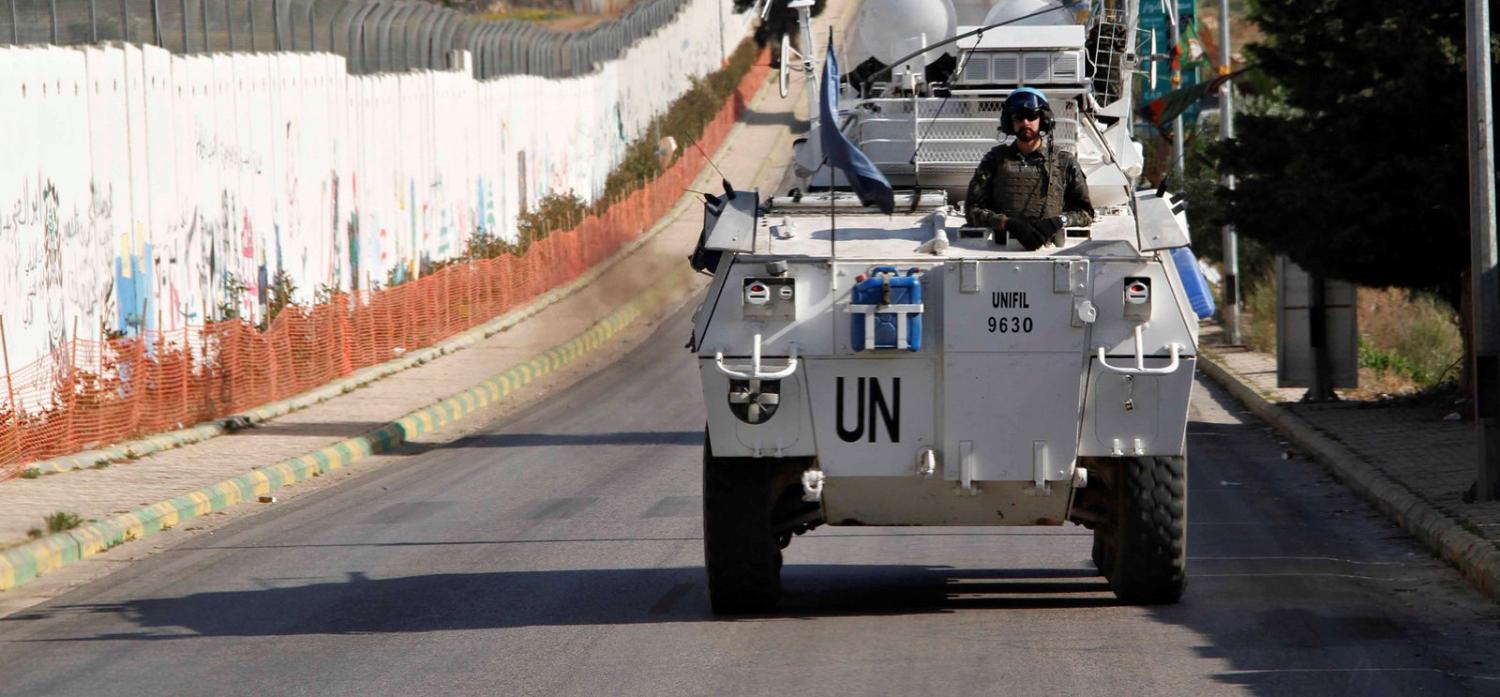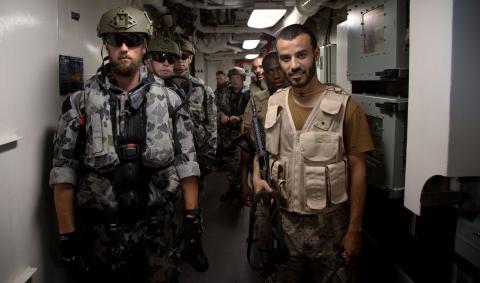Last week the US took aim at the the United Nations Interim Force in Lebanon (UNIFIL) over the issue of Hizbullah’s weapons storage in the south of the country, in the UNIFIL area of operations. The US Ambassador to the UN Nikki Haley criticised the UNIFIL Head of Mission and Force Commander Major General Michael Beary saying 'General Beary says there are no Hezbollah weapons. That’s an embarrassing lack of understanding of what’s going on around him'.
On the face of it, destroying Hizbullah’s weapons caches in south Lebanon would be in line with Western interests. But the question of Hizbullah is a national debate that requires national solutions, not international impositions. Changing UNIFIL’s mandate has the potential to trigger another regional conflict, destroying the positive gains UNIFIL has made since it was deployed after the 2006 war.
The US wants UNIFIL to aggressively seek out Hizbullah weapons in the area of operations which it insists are present. It argues that UNIFIL is ignoring Hizbullah’s weapons and that Hizbullah’s media campaigns prove they exist.
However, the south of Lebanon is not a lawless wasteland where Hizbullah runs rampant. It is now a populated civilian area where people live and work and children play on the streets. Prior to 2006, Hizbullah patrolled the Blue Line, directly facing off against the Israeli Defence Force (IDF). Violent confrontations were common and indeed triggered the 2006 war. As part of UNSC Resolution 1701 which brokered the peace deal, Hizbullah agreed to pull back to north of the Litani River. There is currently no overt Hizbullah presence in the UN area of operations and this has greatly reduced tensions on both sides of the border. Until now, war has not recommenced.
[[{"fid":"186281","view_mode":"default","fields":{"format":"default","alignment":"center","field_file_image_alt_text[und][0][value]":false,"field_file_image_title_text[und][0][value]":false},"type":"media","field_deltas":{"1":{"format":"default","alignment":"center","field_file_image_alt_text[und][0][value]":false,"field_file_image_title_text[und][0][value]":false}},"link_text":null,"attributes":{"height":560,"width":800,"class":"media-element file-default media-wysiwyg-align-center","data-delta":"1"}}]]
Source: UNIFIL
What the US statements overlook is that there is currently no consensus at local and national levels in Lebanon on whether Hizbullah should be allowed to retain its weapons. In the area of operations there is still significant support for Hizbullah as a deterrent to the Israeli Defence Force. These people believe UNIFIL’s role should be to defend the Lebanese from Israel which they see as the aggressor, not Hizbullah.
Common questions I have received in my research on UNIFIL from the local population are: Why is only one side of the border being patrolled? Why are Israeli infringements ignored and only Hizbullah targeted? If the US seeks change, a more balanced approach would see it simultaneously channelling diplomatic efforts to also curtail Israeli violations of Resolution 1701. Some examples of these violations include daily surveillance overflights in Lebanese airspace, and refusing to withdraw from the northern half of the village of Ghajar that is internationally recognised as Lebanese territory.
Whilst Resolution 1701 requests UNFIL to help clear the area of operations of illegal weapons, this has to be done in conjunction with the Lebanese Armed Forces (LAF). The LAF is Lebanon’s most trusted and legitimate national institution and it currently takes the lead in all weapons clearing exercises. Furthermore, the practicalities of ridding the area of Hizbullah’s alleged weapons would entail forced entry into private property which is illegal without a court order. Understandably, the LAF is unwilling to break national laws.
If this wasn’t enough, the demise of two multinational peacekeeping forces (MNF I & II) in the 1980s, and the bomb attack on the US Marine base is a profound reminder that peace enforcement has never worked in Lebanon. For this reason, the UNIFIL mission is not a Chapter VII (peace enforcement) mission.
Unlike the US (which contributes no troops to UNIFIL), EU States (that comprise 32% of the force) have a more pragmatic view of how the UNIFIL mission works. They understand that it operates in close coordination with the LAF and in accordance with local law. The EU States recognise that changing the approach taken by UNIFIL would risk their troops becoming the target of violent resistance. Over time, this would reduce the number of countries willing to commit troops to the mission.
It’s worth noting here that UNIFIL has made a significantly positive contribution to south Lebanon and Hizbullah’s weapons are not the only part of the picture. Since 2006, UNIFIL has prevented many accidental outbreaks of armed confrontation on the Blue Line from escalating into war. It has helped to produce an environment conducive to economic development and re-established the presence of the Lebanese Armed Forces in the south of Lebanon. It has helped to rebuild local infrastructure and provides myriad public services for the local population necessary for everyday peace. UNIFIL has also supported the smooth running of local elections and provided material and technical assistance in local governance.
Given the current regional instability, the international attention that accompanies the UN mission encourages all of the parties involved to practise restraint. This is helpful. Trying to trigger a confrontation between an international peacekeeping force and Hizbullah - one of the world’s most powerful sub-state militias - is not.

